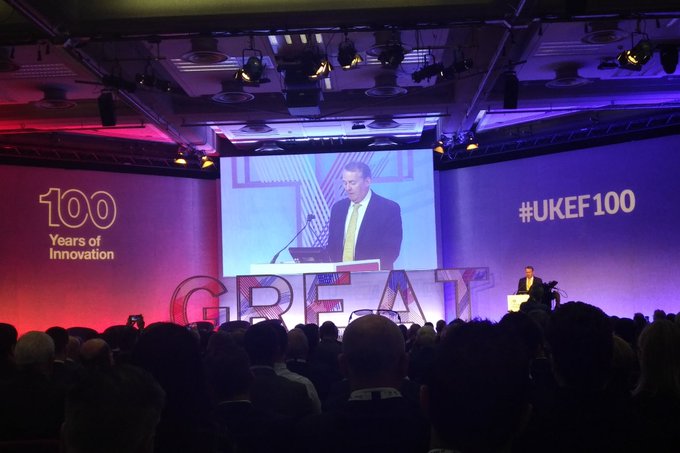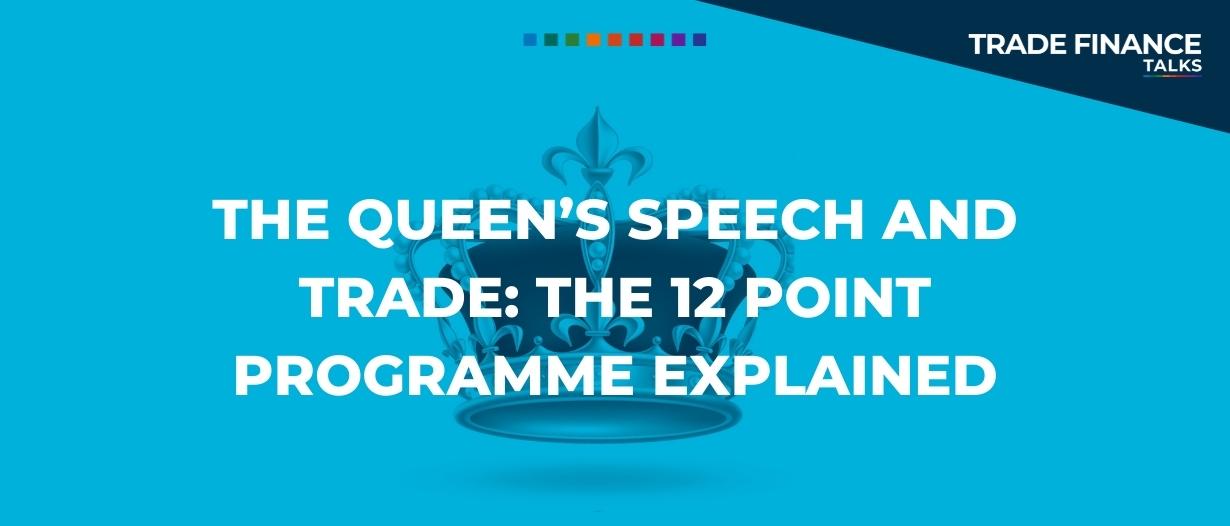Today, in the Queen’s speech, Prince Charle’s said: “Her Majesty’s Government will continue to champion international trade, delivering jobs across the country and growing the economy.
“Legislation will be introduced to enable the implementation of the United Kingdom’s first new Free Trade Agreements since leaving the European Union.”
Along with more concrete announcements that will impact the domestic business environment such as the launch of the new British Infrastructure bank, this announcement will have widespread implications for the British export community.
The most concrete example of the government’s trade strategy is the Department for International Trade’s (DIT), “Made in the UK, sold to the world” programme.

Made in the UK, sold to the world – 12 point programme
On 17 November 2021, DIT released the details of the programme to reach a total of £1 trillion worth of exports by 2030.
1. Export support service (ESS)
The ESS will initially focus on helping exporters to Europe, but if the programme is successful it will be expanded to all markets.
The autumn budget spending review in 2021 afforded £45 million to digital transformation for the ESS and expansion to global markets.
The aim is for support to be simple, targeted, and promote the services of government offices.
The ESS staff will support:
- Guidance on exporting to new markets,
- Support for the paperwork and the rules needed to export in overseas markets.
This support will be facilitated by DIT international trade advisors and linked with British embassies for support in overseas markets.
The ESS and DIT also want to provide specific support to promising SME exporters with high-value trade support with ‘global in-market insight, business connections and export support’
This will be headed by Her Majesty’s regional trade commissioners with initiatives in China, North America, Africa, Latin America, and the Caribbean.

2. Expanding UKEF
Modus operandi is to support finance for viable exporting businesses where the private sector market has failed.
Between 2020 and 2021, UKEF supported businesses through the pandemic by providing finance and insurance valued at £12.3 billion.
UK Export Finance (UKEF) Export Development Guarantee (EDG) allows UKEF to provide 80% guarantees on loans of £25 million and above to support companies’ general expenditure.
They want to expand the programme to prospective exporters and international companies looking to domicile and export from the UK.
UKEF will offer green economy exporters access to increased lending capacity, providing its EDG on extended repayment terms.
The General Export Facility (GEF) provides guaranteed finance for working capital not directly linked to exporting contracts (no evidence is needed of export contract, they just meet minimum export turnover criteria).
They have increased the amount companies can access automatically from their bank without the need for separate approval, from £2 million to £5 million.
Simplified bills and notes guarantee “will allow SME exporters to be paid immediately while a financing bank subsequently seeks payment from the overseas buyer on the basis of bills of exchange or promissory notes.”
Standard buyer loan guarantee launched (covers loan to an oversea buyer of UK goods or services). Supplier fairs “connect contractors and overseas buyers with UK exporters and suppliers.”
Work in tandem with the private sector and UK’s development finance institutions to expand the financial services available for businesses looking to export.
Exporter’s Edge is a service provided by UKEF with export finance managers to prepare businesses to access trade finance, alongside the DIT’s Export Academy finance modules.
3. Financial support for SMEs
The exporting through the European Regional Development Fund (ERDF) Internationalisation Fund which provides financing to 7,500 SMEs up to £9000 to fund export-related activities.
The internationalisation fund will support SMEs’ capital expenditure to spend on their business growth of between £1000 to £9000, with the businesses paying around 40-50% of the total cost.
Example of expenditures:
- Market research
- Intellectual property advice,
- Attendance at trade fairs,
- Translation services
- Consultancy
4. UK Export Academy
The UK Export Academy’s goal is to teach SMEs how to sell to international customers and secure contracts around the world.
They offer a foundation course – 10 educational online seminars that will help firms create an export action plan tailored to their business.
Sector faculties – sector and market-specific virtual events as well as market access events – that outline new market opportunities such as new Free Trade Agreements (FTA).
5. Connect business with government departments situated around the world
FCDO is planning to roll out its British Support for Infrastructure Projects (BSIP) programme, formerly known as the Developing Markets Infrastructure Programme (DMIP).
The FCDO has 9 trade commissioners and 33 trade envoys at its disposal as well as UKEF’s global network of international export finance executives’ which will expand from 15 to 30.
6. Government to government partnerships
Support businesses in partnerships with governments in new markets. Support developing countries’ infrastructure gap and responsible investments.

7. Making exports easier
The Foreign, Commonwealth, and Development office (FCDO) will seek to improve the environment for trade in emerging markets by supporting local businesses and UK exporters and investors.
“Regulatory Diplomacy overseas to shape and influence global norms, regulations and standards, to improve market access for UK exporters” which they will develop through cooperation in areas such as standards, regulations, infrastructure, economic management and financial markets.
The professional qualifications bill was a government bill that means when negotiating trade agreements, they will actively support cross-border recognition of professional qualifications to support exports in the services sector.
In 2020, the DIT published the 2025 UK Border Strategy goal of the most effective border in the world.
The digital exporting programme provides support through digital trade and e-commerce exports, tools and, a global network of partners.
The government are working to establish Freeports, which provides tax relief on capital investment, business rates, NI with VAT relief, and a simpler customs process.
8. Opening markets
The UK wants to keep its high standards of environmental, social, and consumer protection as well as support freer trade while supporting domestic business.
The UK has applied to become a part of the Comprehensive and Progressive Agreement for a Trans-Pacific Partnership (CPTPP).
The DIT also released potential economic impact assessments and the government signed FTAs with Australia and New Zealand in December 2021 and February 2022 respectively, however, these are not currently in force.
Focus on non-tariff barriers. Reform the World Trade Organization (WTO) works multilaterally to strengthen the international trading system.
DIT will monitor success, attempt to modify agreements, resolve issues, and support UK businesses to take advantage.
9. Publicity campaign for Made in the UK, Sold to the World
Made In the UK, Sold to the World will hold events to highlight the trade support programmes that the government offers.
The GREAT campaign will promote British business exporting activities to overseas buyers.
There is a focus on connecting with buyers in specific sectors:
- Agri-food and drink,
- Financial, professional, and business services,
- Creative industries,
- Education,
- Tech and digital,
- Consumer and luxury goods
- Clean growth.
10. UK trade show programme
UKTP pilot to continue to April 2023. Support with training and with grants to attend trade shows with a grant of up to £4,000 for eligible exhibition costs.
11. Exporting champions network (business-business network):
The DIT wants to build a network of experienced exporters and grow private sector links between businesses. It currently has 1700 individuals in the “export champion community.”
12. Expand DIT coverage of the UK
DIT is building offices in Scotland, Wales, Northern Ireland, and northern England, with the plan of 550 roles spread across these offices by 2025.
These offices will engage with local industry, identify competitive advantages and local priorities and provide specific support on trade policy and market access.
Work with home nation initiatives with “Wales’s Export Action Plan, Northern Ireland’s ‘10X Economy’ and Scotland: A Trading Nation.”
Read the latest issue of Trade Finance Talks, June 2022






























